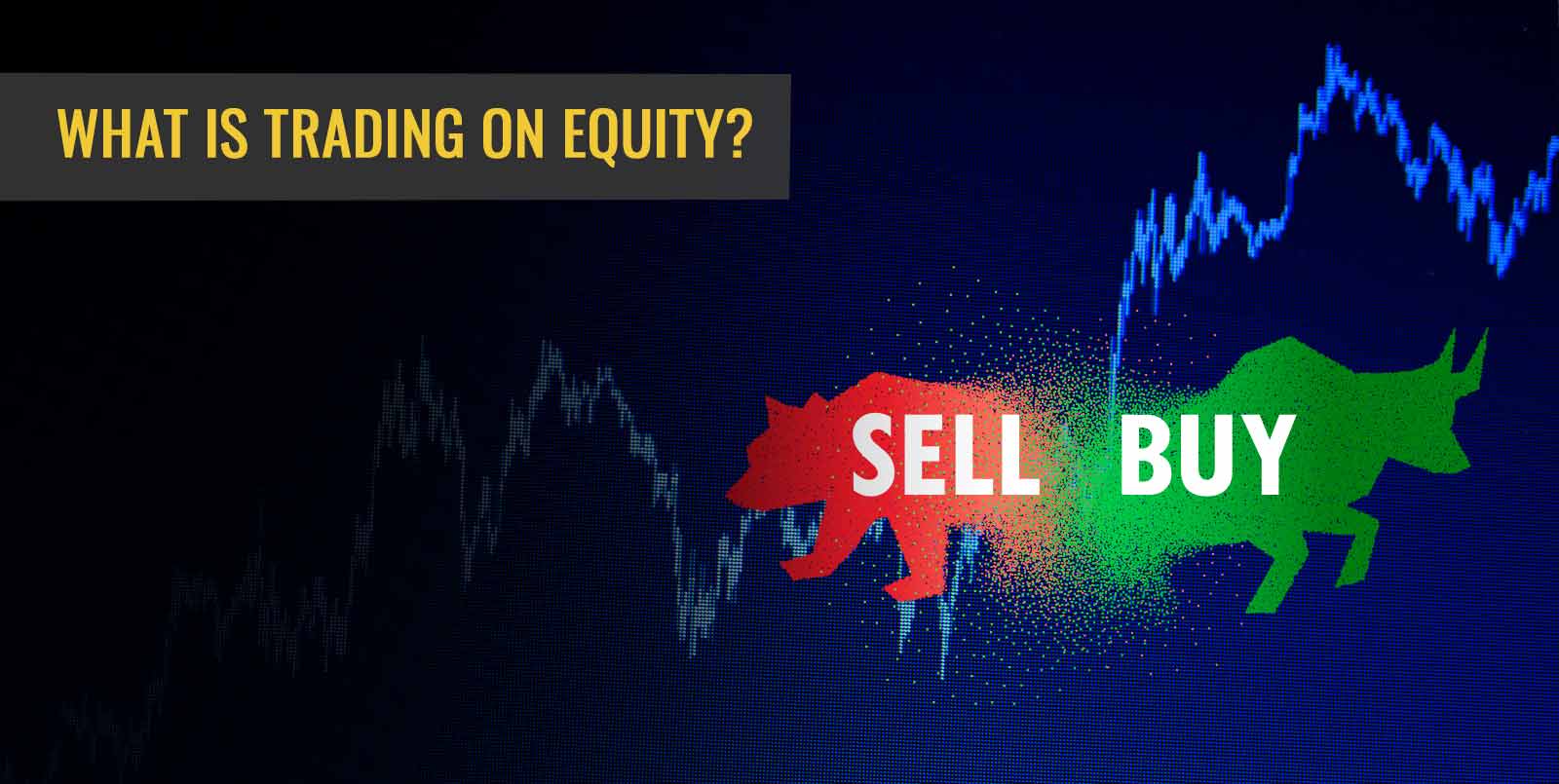What is Trading On Equity?
Trading on equity is a financial process in which debt produces gain for shareholders of a company. Trading on equity happens when a company incurs new debt using bonds, loans, bonds or preferred stock. The company then uses these funds to gain assets which will create returns which are larger than the interest of the new debt. Alternatively, trading on equity called financial leverage. If it helps the company to generate profit and results in a higher return for the shareholders on their investment, it is considered a success. Companies usually go this way to boost earnings per share.
‘Trading on equity’ is called so because the company gets its loan amount from the creditors based on its equity strength. Companies usually borrow funds at favourable terms by taking advantage of their equity. If the amount borrowed is large as compared to the company’s equity, it is categorised as ‘trading on thin equity.’ When the borrowed amount is modest, the company is ‘trading on thick equity.’
Types of Trading On Equity
Let's look at the different types of equity trading:
1. Trading on Thin Equity
This occurs when a company has a relatively high level of debt in proportion to its equity capital. In simple terms, the company’s total liabilities, represented by its debt, are significantly closer in value to its equity. This can increase financial risk due to higher leverage.
For example, if a company has ₹250 crores in equity but ₹600 crores in debt, it is considered to be trading on thin equity. A large portion of its activities is funded by borrowing, leading to elevated financial risk due to the increased reliance on debt.
2. Trading on Thick Equity
Conversely, trading on thick equity is when a company has considerably higher equity capital compared to its debt. In this case, the company uses more internal funds (equity) and less external borrowing (debt), implying a stronger financial position.
For instance, if a company has ₹700 crores in equity and only ₹100 crores in debt, it is considered trading on thick equity. The reliance on internal funding reduces financial leverage, resulting in lower risk exposure.
Advantages of Trading On Equity
Trading on equity offers a company two advantages

Enhanced earnings: By borrowing the funds necessary, the company creates for itself more avenues of earning revenue by obtaining new assets.
Tax treatment is favourable- The borrowed funds have an interest expense that is tax deductible. So, the borrowing company has to pay lower tax. So, basically, the new debt results in a reduction of the total cost for the borrower.
Disadvantages of Trading On Equity
Trading on equity has its own set of risk factors. It may result in further losses if the interest expense cannot be paid off by the business. You should note that such borrowings can cause high-risk situations for a business, which is depending on the borrowed amount to finance its operations.
If there is an unexpected rise in the interest rates, it can cause losses because the financial burden of the interest would increase for the company. So, while trading on equity holds the promise of potential increased returns, there is also a real risk of bankruptcy you must take into account.
When Can You Consider It A Success?
Trading on equity is likely to be profitable in the following cases-
- When a company that is well-established resorts to such means financing
- The nature of the company’s business is not speculative
- the company has profits and sales that are both regular and stable
It is because of the above points that public utility concerns frequently use this financing concept. These organisations have ample liquidity to allow for large scale borrowing.
Difference between Trading on Equity and Equity Trading
Many people often mistake the terms "trading on equity" and "equity trading" as being similar, though they represent two completely different ideas. Trading on equity refers to a financial strategy used to boost shareholder earnings, whereas equity trading involves the buying and selling of stocks.
Company managers implement trading on equity to capitalize on the difference between returns on investments and the interest on debt. In contrast, equity trading is accessible to any individual or entity, where investors aim to profit from stock price fluctuations by purchasing at lower prices and selling at higher prices.
Understanding the distinction between these two terms is essential for eliminating any existing confusion and for better financial decision-making.
Conclusion
Trading on equity may result in uneven earnings, so it impacts the stock options by increasing their recognised cost. When an increase in earnings occurs, it is option holders who are most likely to cash their options. Since the earnings are not fixed, the chances of the holder earning a higher return are greater.
So, it is more likely that managers will use this option more that owners. Using the process, managers have the opportunity to increase the worth of the stock options. A business that is run by a family, on the other hand, has financial security as its high priority, so, it is unlikely that they would go this route.
As the bottom line, we can view trading on equity as a sort of trade-off. A company uses its equity as a way to get more funds in order to purchase new assets, and uses these new assets to pay for its debt.

